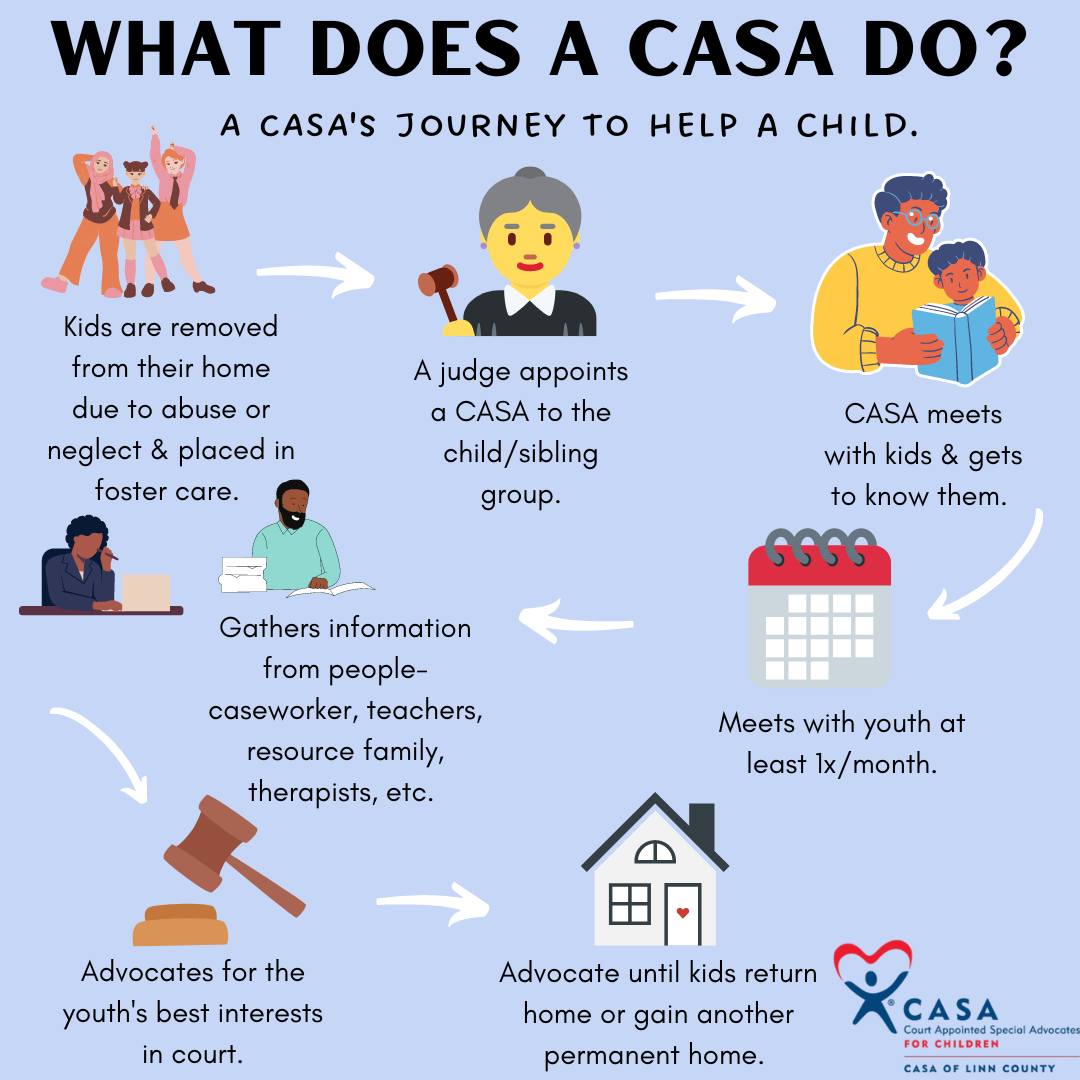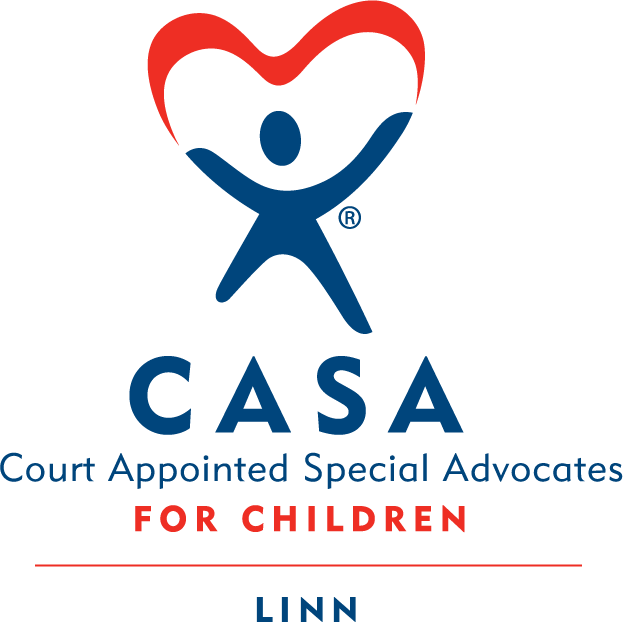
A CASA volunteer is an ordinary person who does extraordinary things for a child in foster care.
Court Appointed Special Advocates (or CASAs) are trained and committed volunteers who ensure that each child’s individual needs remain a priority in an over-burdened child welfare system.
CASA advocates are citizens from all walks of life. They are dedicated to promoting the needs of children who have been removed from their parents’ care due to neglect or abuse
Attend a CASA Information Session to learn more about becoming a CASA:
Upcoming Sessions
December 12, 2023
12:00-1:00pm- RSVP
Zoom/online- link given in confirmation
January 4, 2024
12:15-1:00pm- RSVP
in person at CASA office
January 4, 2024
5:30-6:30pm- RSVP
Zoom/online- link given in confirmation
To become a Court-Appointed Special Advocate, you must meet the following requirements:
- Willing to dedicate 40 hours to training, and commit to seeing their cases through to the final resolution – of a safe and permanent home for the children involved.
- You must be at least 21 years of age.
- Must be able to pass reference checks and an Oregon Department of Human Services and criminal background check before becoming a child advocate.
- You may not be a current foster parent or in the process of adopting a child from ODHS.
- Most importantly, CASA volunteers need to be passionately dedicated to helping children who have been abused or neglected.
If you meet these requirements and are ready to advocate for a youth in foster care, please fill out a volunteer application and e-mail it to jennifer.cabral-ireland@linncasa.org or bring it into our office.
If the Volunteer Application button doesn’t work, download CASA Volunteer Application here:
You may find answers to common questions on our Volunteering FAQ page.
